 Search by Keyword
|
“P.S. I LOVE YOU”
(John Lennon - Paul McCartney)
In the '60s, US record charts were set up in such a way as to allow both sides of a new single individual chart placements. Only a relative few recording artists were of the caliber to have both sides of their latest single receive a listing on the Top 40 charts.
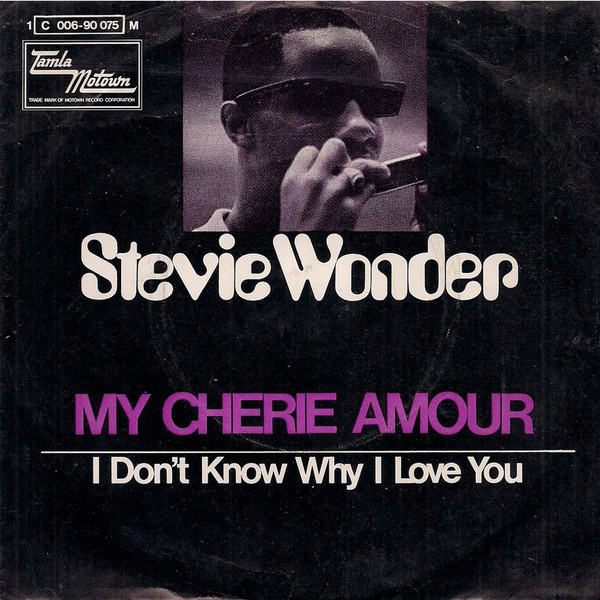 Elvis Presley was surely one of these, having done it 26 times in the '50s and '60s, five of these times achieving a US Top Ten hit with both the a-side and b-side of the record. The accomplishment of attaining both sides of a single to chart on the US Billboard Hot 100 was quite uncommon even among the top recording artists of the time. The Four Seasons, The Rolling Stones and Stevie Wonder each did it one time, while this privilege was not attained by most artists, even by chart powerhouses like The Supremes, The Temptations or Marvin Gaye. Elvis Presley was surely one of these, having done it 26 times in the '50s and '60s, five of these times achieving a US Top Ten hit with both the a-side and b-side of the record. The accomplishment of attaining both sides of a single to chart on the US Billboard Hot 100 was quite uncommon even among the top recording artists of the time. The Four Seasons, The Rolling Stones and Stevie Wonder each did it one time, while this privilege was not attained by most artists, even by chart powerhouses like The Supremes, The Temptations or Marvin Gaye.
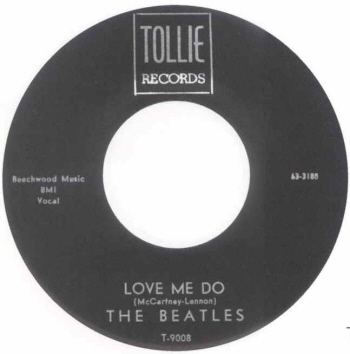 As you would undoubtedly expect, The Beatles were able to achieve this status right away with their first national hit, “I Want To Hold Your Hand.” During their six year run on the American singles charts in the '60s, they racked up 14 occurrences of both sides of their current singles appearing on the Billboard Top 40 chart simultaneously. And like Elvis Presley before them, five of these occurrences had both sides of these singles positioned in the Top Ten. As you would undoubtedly expect, The Beatles were able to achieve this status right away with their first national hit, “I Want To Hold Your Hand.” During their six year run on the American singles charts in the '60s, they racked up 14 occurrences of both sides of their current singles appearing on the Billboard Top 40 chart simultaneously. And like Elvis Presley before them, five of these occurrences had both sides of these singles positioned in the Top Ten.
“P.S. I Love You,” a song which they contemplated releasing as the a-side of their first British single, became the first occurrence in the US of having a Top Ten placement on the Billboard Hot 100 with the b-side of their #1 single “Love Me Do.”
Songwriting History
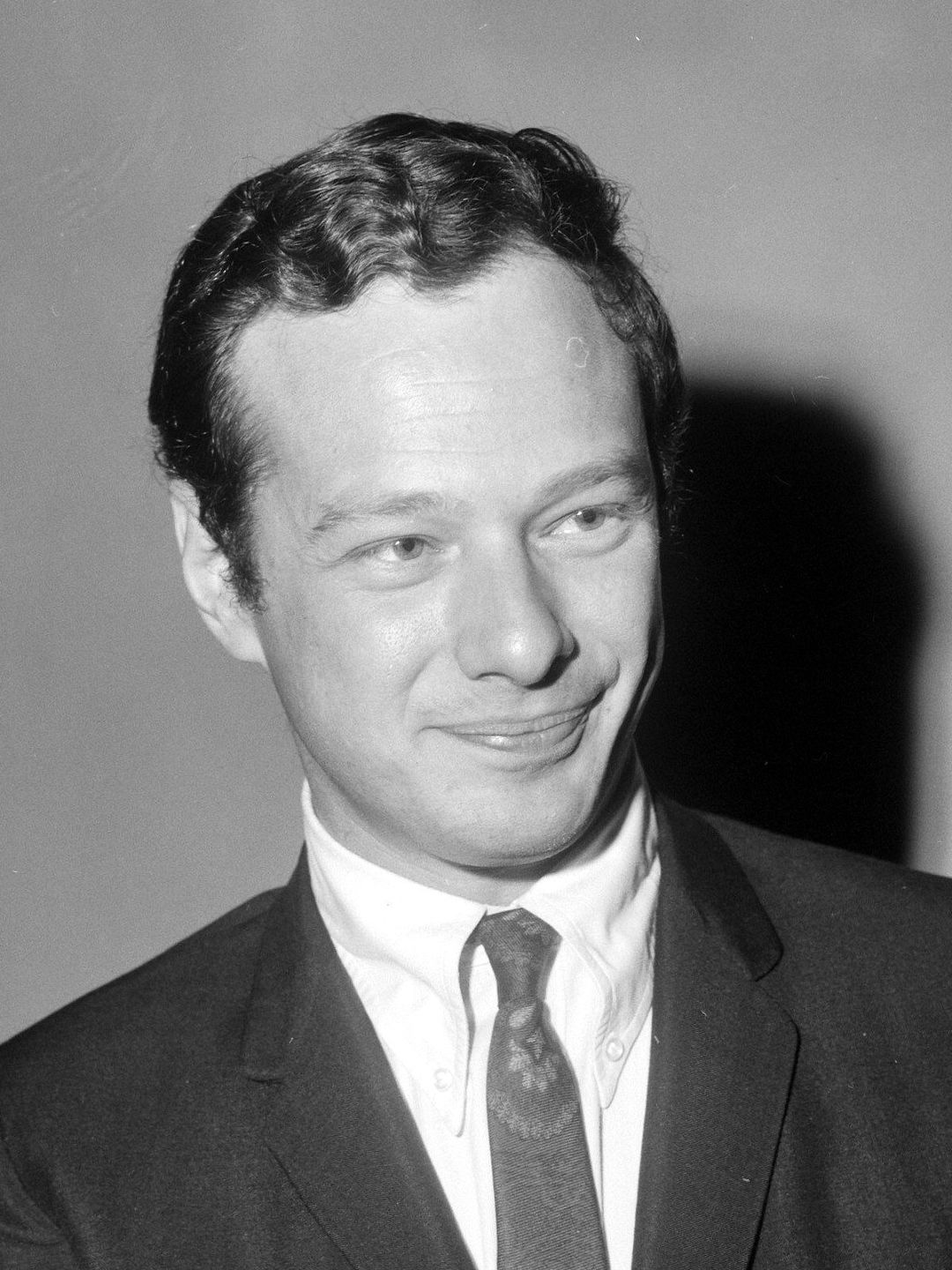 From interviews with John and Paul through the years, it can be estimated that the song "P.S. I Love You" had been composed approximately in the latter half of May, 1962. Their manager Brian Epstein had sent a telegram to The Beatles during their stay in Hamburg, Germany indicating that he had secured a recording contract with EMI and stated that the group should "rehearse new material." The Beatles took this to indicate that they needed to compose new original songs, so "P.S. I Love You" was among their first fruits after they received the telegram. "He wrote that in Germany, or when we were going to or from Hamburg," Lennon recalled. From interviews with John and Paul through the years, it can be estimated that the song "P.S. I Love You" had been composed approximately in the latter half of May, 1962. Their manager Brian Epstein had sent a telegram to The Beatles during their stay in Hamburg, Germany indicating that he had secured a recording contract with EMI and stated that the group should "rehearse new material." The Beatles took this to indicate that they needed to compose new original songs, so "P.S. I Love You" was among their first fruits after they received the telegram. "He wrote that in Germany, or when we were going to or from Hamburg," Lennon recalled.
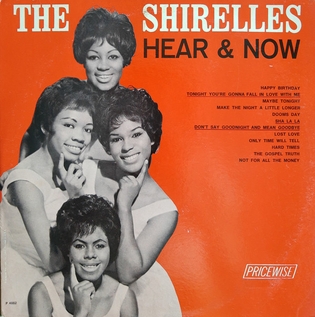 As to the song's authorship, it is agreed by both John and Paul that it was mostly, if not fully, McCartney’s song. John stated in his 1980 Playboy interview that he personally “might have contributed something, I can't remember anything in particular” but elaborates further in another interview by saying: "I think we helped him a bit. He was trying to write a 'Soldier Boy,' like The Shirelles track." "Soldier Boy" was a #23 British hit in the spring of 1962, a copy of this record then being sent by Brian Epstein to Hamburg, Germany where the group was currently performing for the group to consider learning, which they quickly incorporated into their German stage act between April 11th and June 4th of 1962. The Beatles interpreted the lyrics to "Soldier Boy" as a love letter being read out loud, thereby being the main inspiration for mimicking in "P.S. I Love You." As to the song's authorship, it is agreed by both John and Paul that it was mostly, if not fully, McCartney’s song. John stated in his 1980 Playboy interview that he personally “might have contributed something, I can't remember anything in particular” but elaborates further in another interview by saying: "I think we helped him a bit. He was trying to write a 'Soldier Boy,' like The Shirelles track." "Soldier Boy" was a #23 British hit in the spring of 1962, a copy of this record then being sent by Brian Epstein to Hamburg, Germany where the group was currently performing for the group to consider learning, which they quickly incorporated into their German stage act between April 11th and June 4th of 1962. The Beatles interpreted the lyrics to "Soldier Boy" as a love letter being read out loud, thereby being the main inspiration for mimicking in "P.S. I Love You."
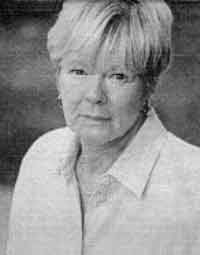 Other inspirations for the song include the first line "As I write this letter" as heard in Pat Boone's 1956 hit "I'll Be Home," this song being was a favorite in the McCartney household shortly after its release. As for the somewhat Latin rhythm heard in the song, The Beatles were already incorporating this feel into much of their repertoire, such as evident in "Besame Mucho," "The Honeymoon Song," "Till There Was You," and their recently written original composition "Ask Me Why." It has also been suggested that Paul had written "P.S. I Love You" as a letter to his girlfriend Dorothy "Dot" Rhone who was back in Liverpool while he was away in Hamburg. "It's not based in reality," Paul explains in his book "Many Years From Now," "nor did I write it to my girlfriend from Hamburg, which some people think." Other inspirations for the song include the first line "As I write this letter" as heard in Pat Boone's 1956 hit "I'll Be Home," this song being was a favorite in the McCartney household shortly after its release. As for the somewhat Latin rhythm heard in the song, The Beatles were already incorporating this feel into much of their repertoire, such as evident in "Besame Mucho," "The Honeymoon Song," "Till There Was You," and their recently written original composition "Ask Me Why." It has also been suggested that Paul had written "P.S. I Love You" as a letter to his girlfriend Dorothy "Dot" Rhone who was back in Liverpool while he was away in Hamburg. "It's not based in reality," Paul explains in his book "Many Years From Now," "nor did I write it to my girlfriend from Hamburg, which some people think."
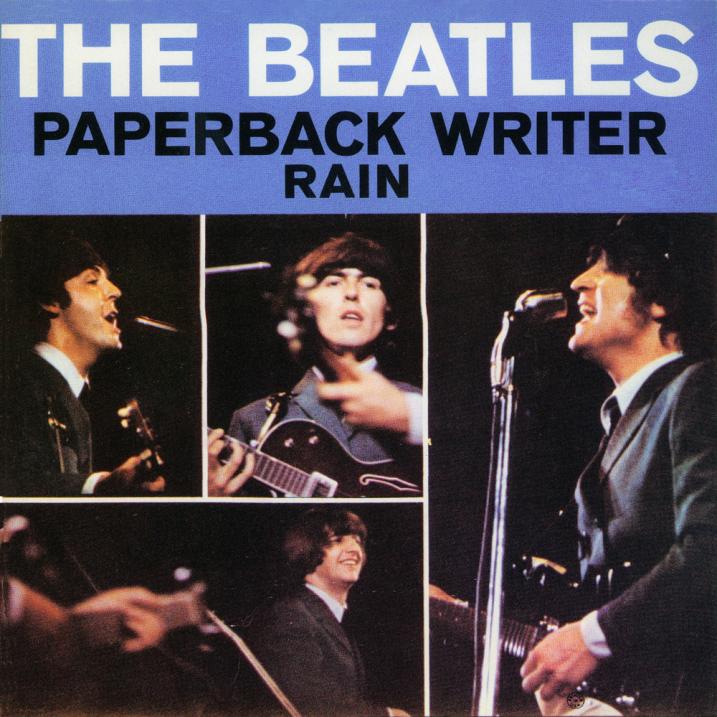 Paul also goes on to explain in his 1997 book "Many Years From Now" that this was "just an idea for a song, really, a theme song based on a letter, like the 'Paperback Writer' idea. It was pretty much mine. I don't think John had much of a hand in it. There are certain themes that are easier than others to hang a song on, and a letter is one...'Dear John' is the other version of it. The letter is a popular theme and it is just my attempt at one of those." Paul also goes on to explain in his 1997 book "Many Years From Now" that this was "just an idea for a song, really, a theme song based on a letter, like the 'Paperback Writer' idea. It was pretty much mine. I don't think John had much of a hand in it. There are certain themes that are easier than others to hang a song on, and a letter is one...'Dear John' is the other version of it. The letter is a popular theme and it is just my attempt at one of those."
Recording History
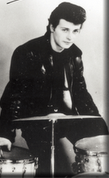 The first time this song was premiered in a recording studio was during their first recording session at EMI Studios with George Martin on June 6th, 1962 between 6 and 8 pm. "P.S. I Love You" was chosen from a list of song suggestions that Beatles' manager Brian Epstein typed up specifically for this session, this selection being the third of four songs recorded on that day, the number of takes the group made of this song not being known. George Martin did have something positive to say about this song, however, commenting that he liked the alternation between major and minor chords. The recording they made of “P.S. I Love You” on this day (with Pete Best on drums) has apparently been lost or recorded over, although some of the tapes have resurfaced later, as has happened with the version of “Love Me Do” that The Beatles recorded on this day (made available on “Anthology 1”). As to whether this early recording of "P.S. I Love You" will too resurface, only time will tell. The first time this song was premiered in a recording studio was during their first recording session at EMI Studios with George Martin on June 6th, 1962 between 6 and 8 pm. "P.S. I Love You" was chosen from a list of song suggestions that Beatles' manager Brian Epstein typed up specifically for this session, this selection being the third of four songs recorded on that day, the number of takes the group made of this song not being known. George Martin did have something positive to say about this song, however, commenting that he liked the alternation between major and minor chords. The recording they made of “P.S. I Love You” on this day (with Pete Best on drums) has apparently been lost or recorded over, although some of the tapes have resurfaced later, as has happened with the version of “Love Me Do” that The Beatles recorded on this day (made available on “Anthology 1”). As to whether this early recording of "P.S. I Love You" will too resurface, only time will tell.
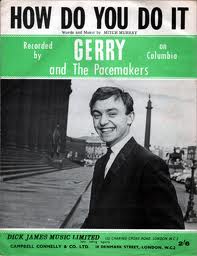 Producer Ron Richards ran The Beatles (with their new drummer Ringo Starr) through a rehearsal session at EMI Studio Three on September 4th, 1962, between 2:30 and 5:30 pm, in order to determine which two songs would be recorded for their first single during the evening session of that day. Of the six songs rehearsed at this time, “P.S. I Love You” was among them, being that they had already recorded this song three months earlier back on June 6th with a bit of positive feedback from George Martin. This song was not chosen at this time because George Martin had hand-picked “How Do You Do It” to be recorded as their a-side and, reluctantly, “Love Me Do” for the b-side. Producer Ron Richards ran The Beatles (with their new drummer Ringo Starr) through a rehearsal session at EMI Studio Three on September 4th, 1962, between 2:30 and 5:30 pm, in order to determine which two songs would be recorded for their first single during the evening session of that day. Of the six songs rehearsed at this time, “P.S. I Love You” was among them, being that they had already recorded this song three months earlier back on June 6th with a bit of positive feedback from George Martin. This song was not chosen at this time because George Martin had hand-picked “How Do You Do It” to be recorded as their a-side and, reluctantly, “Love Me Do” for the b-side.
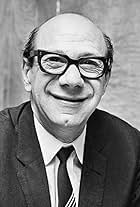 As events transpired, the song “How Do You Do It,” although being recorded, was rejected by publisher Dick James because he didn't think The Beatles' version did the song justice. This left a big question mark as to what the a-side of the first Beatles record was going to be. That question mark was still hanging in the air a week later when the band reconvened at EMI Studios for their next recording session. As events transpired, the song “How Do You Do It,” although being recorded, was rejected by publisher Dick James because he didn't think The Beatles' version did the song justice. This left a big question mark as to what the a-side of the first Beatles record was going to be. That question mark was still hanging in the air a week later when the band reconvened at EMI Studios for their next recording session.
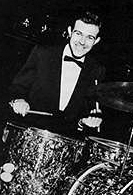 September 11th, 1962, was that session, with Ron Richards as producer. The session ran from 4:45 to 6:30 pm in EMI Studio Two. Geoff Emerick, a newly hired teenage "button-pusher" for EMI, was present during this session to witness the uncomfortable situation that ensued as Ringo arrived on this day to find that the professional drummer Andy White had been hired for this session. “We weren’t happy with the drum sound on the original ‘Love Me Do,’” explained Ron Richards regarding their earlier September 4th session, “so I booked Andy White for the re-make. I used him a lot at the time – he was very good.” September 11th, 1962, was that session, with Ron Richards as producer. The session ran from 4:45 to 6:30 pm in EMI Studio Two. Geoff Emerick, a newly hired teenage "button-pusher" for EMI, was present during this session to witness the uncomfortable situation that ensued as Ringo arrived on this day to find that the professional drummer Andy White had been hired for this session. “We weren’t happy with the drum sound on the original ‘Love Me Do,’” explained Ron Richards regarding their earlier September 4th session, “so I booked Andy White for the re-make. I used him a lot at the time – he was very good.”
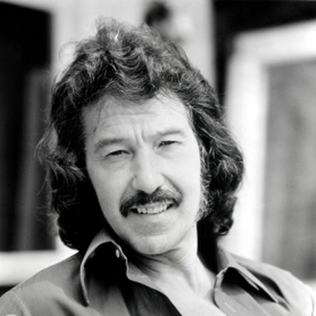 Geoff Emerick’s 2007 book “Here, There And Everywhere” gives us the details: “Ringo looked around a little helplessly, at a loss as to what to do. He began heading up to the control room and as the door opened up, (engineer Norman Smith) crossed the room in order to greet him. ‘Morning, Norman,’ Ringo answered in a funeral tone that matched his demeanor. Where’s George (Martin)? A flustered Ron (Richards) then cleared his throat and introduced himself to Ringo…’Well, actually he’s asked me to tell you that we’ll be using Andy (White) here today – he’s a professional drummer, hired for the session.’ Ringo’s face fell further still; he looked like he wanted to jump off the nearest bridge.” Geoff Emerick’s 2007 book “Here, There And Everywhere” gives us the details: “Ringo looked around a little helplessly, at a loss as to what to do. He began heading up to the control room and as the door opened up, (engineer Norman Smith) crossed the room in order to greet him. ‘Morning, Norman,’ Ringo answered in a funeral tone that matched his demeanor. Where’s George (Martin)? A flustered Ron (Richards) then cleared his throat and introduced himself to Ringo…’Well, actually he’s asked me to tell you that we’ll be using Andy (White) here today – he’s a professional drummer, hired for the session.’ Ringo’s face fell further still; he looked like he wanted to jump off the nearest bridge.”
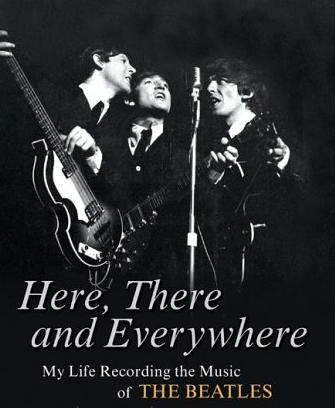 Continuing in "Here, There And Everywhere," Geoff Emerick adds: “Andy White, looking embarrassed, stood up. ‘Hello, mate,’ he said to Ringo, ‘I have heard a lot of good things about your group.’ After they shook hands awkwardly, (Andy) White quickly headed down to the studio. I remember being impressed by Andy (White)’s decision to leave right away, thus avoiding what could have been an unpleasant confrontation; another lesson in studio etiquette. Dejectedly, Ringo sank into a chair next to Ron (Richards) and the session got underway. The Beatles began by running through a new song, entitled ‘P.S. I Love You.’ After just a few run-throughs, White seemed to get the hang of it. I was amazed at how quickly he did so, and how well he fit in with three unfamiliar musicians – the mark of a great session player.” Continuing in "Here, There And Everywhere," Geoff Emerick adds: “Andy White, looking embarrassed, stood up. ‘Hello, mate,’ he said to Ringo, ‘I have heard a lot of good things about your group.’ After they shook hands awkwardly, (Andy) White quickly headed down to the studio. I remember being impressed by Andy (White)’s decision to leave right away, thus avoiding what could have been an unpleasant confrontation; another lesson in studio etiquette. Dejectedly, Ringo sank into a chair next to Ron (Richards) and the session got underway. The Beatles began by running through a new song, entitled ‘P.S. I Love You.’ After just a few run-throughs, White seemed to get the hang of it. I was amazed at how quickly he did so, and how well he fit in with three unfamiliar musicians – the mark of a great session player.”
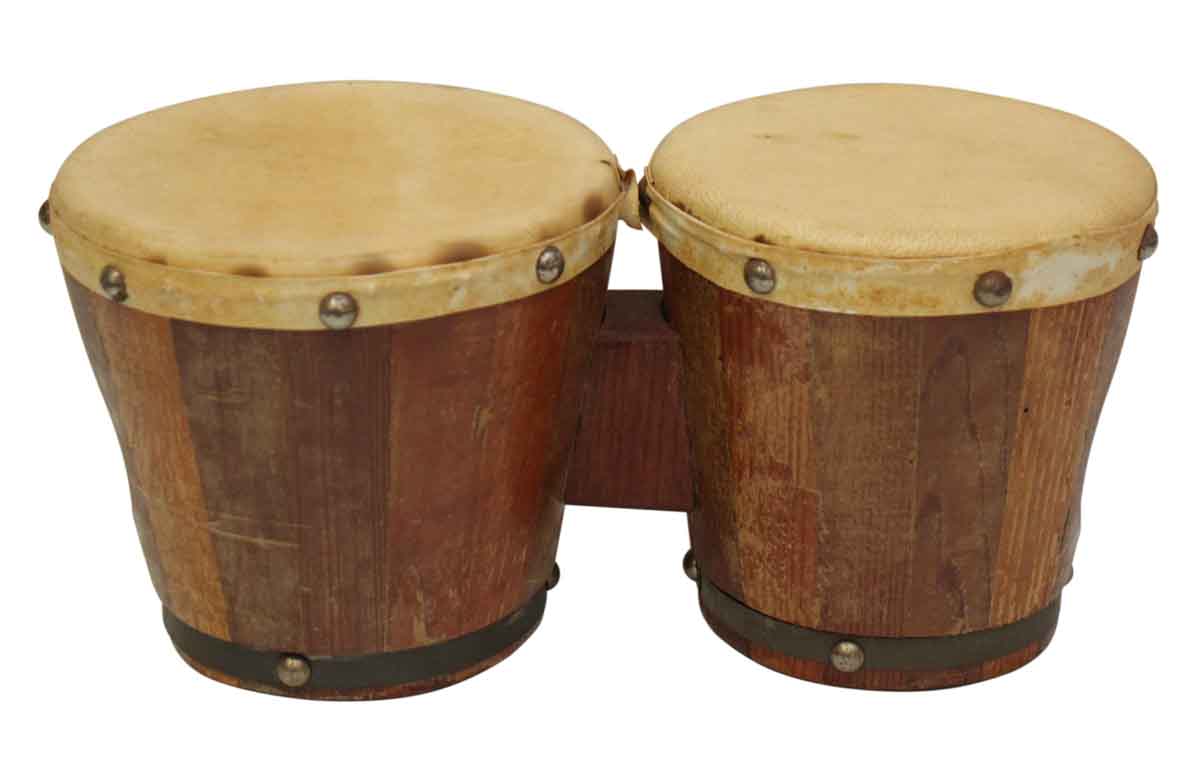 “Following some discussion, it was decided that full drums weren't necessary on the song and then (Andy White) was relegated to playing bongos. After a few run-throughs, Ron (Richards) suggested that Ringo go downstairs and join in, playing maracas. I could sense he was growing increasingly uncomfortable at having the sulking drummer sitting beside him, and this must have struck him as a good way of getting Ringo out of the control room.” “Following some discussion, it was decided that full drums weren't necessary on the song and then (Andy White) was relegated to playing bongos. After a few run-throughs, Ron (Richards) suggested that Ringo go downstairs and join in, playing maracas. I could sense he was growing increasingly uncomfortable at having the sulking drummer sitting beside him, and this must have struck him as a good way of getting Ringo out of the control room.”
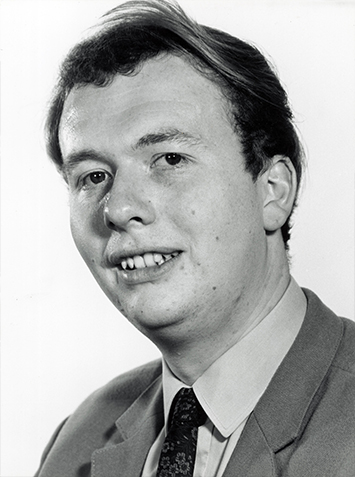 “P.S. I Love You” was recorded live with no overdubs or edits onto a single track tape machine and, after 10 takes, it was complete, "take 10" being deemed best. After the recording was complete, Geoff Emerick recalls that the group “came up to the control room for a playback. They were enthused by what they were hearing, and eagerly discussed making it the a-side, but Ron Richards dismissed them imperiously. ‘It is good, but it’s no a-side,’ he said. ‘We’ll use it as the b-side of your first single. Now we need get back to work; George (Martin) wants you to have another go at ‘Love Me Do.’” “P.S. I Love You” was recorded live with no overdubs or edits onto a single track tape machine and, after 10 takes, it was complete, "take 10" being deemed best. After the recording was complete, Geoff Emerick recalls that the group “came up to the control room for a playback. They were enthused by what they were hearing, and eagerly discussed making it the a-side, but Ron Richards dismissed them imperiously. ‘It is good, but it’s no a-side,’ he said. ‘We’ll use it as the b-side of your first single. Now we need get back to work; George (Martin) wants you to have another go at ‘Love Me Do.’”
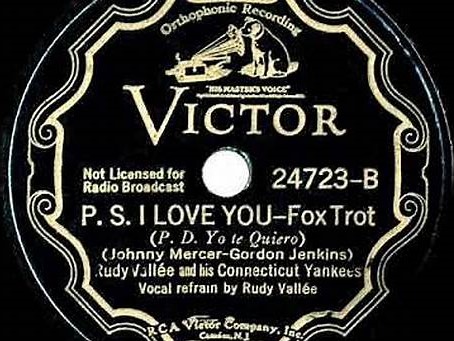 Ron Richards revealed another reason that “P.S. I Love You” couldn't be the a-side for The Beatles' first single: “I was originally a music publishing man, a plugger, so I knew that someone had already released a record with that title.” What Ron Richards recalled was a 1934 composition by Johnny Mercer and Gordon Jenkins that was made popular on that year on RCA Victor by Rudy Vallee And His Connecticut Yankees, the song later covered by many artists such as Frank Sinatra, The Starlets and Billie Holiday. Ron Richards revealed another reason that “P.S. I Love You” couldn't be the a-side for The Beatles' first single: “I was originally a music publishing man, a plugger, so I knew that someone had already released a record with that title.” What Ron Richards recalled was a 1934 composition by Johnny Mercer and Gordon Jenkins that was made popular on that year on RCA Victor by Rudy Vallee And His Connecticut Yankees, the song later covered by many artists such as Frank Sinatra, The Starlets and Billie Holiday.
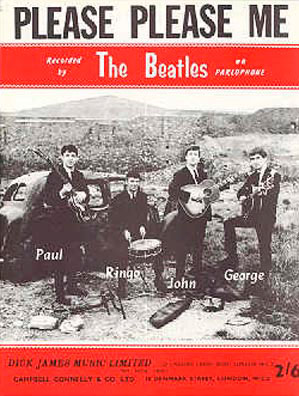 The Beatles only needed approximately one hour to record "P.S. I Love You," so by 5:45 pm, they recorded a version of John Lennon's recent composition "Please Please Me" for possible consideration as the b-side and then started work on “Love Me Do.” “P.S. I Love You” was then mono mixed at the end of the session by Ron Richards, Norman Smith and Geoff Emerick in the EMI Studio Two control room. This mix was used for its British single release on October 5th, 1962. The Beatles only needed approximately one hour to record "P.S. I Love You," so by 5:45 pm, they recorded a version of John Lennon's recent composition "Please Please Me" for possible consideration as the b-side and then started work on “Love Me Do.” “P.S. I Love You” was then mono mixed at the end of the session by Ron Richards, Norman Smith and Geoff Emerick in the EMI Studio Two control room. This mix was used for its British single release on October 5th, 1962.
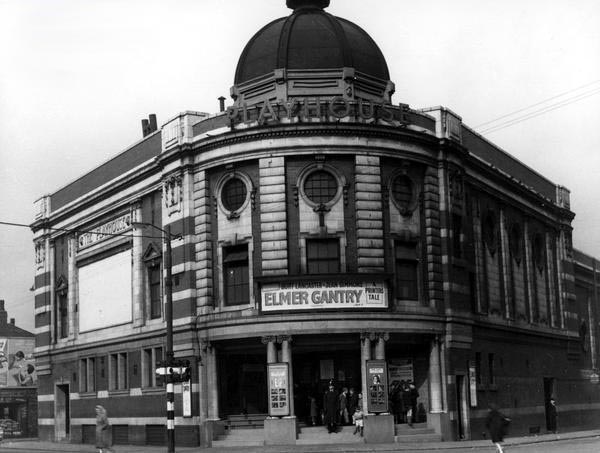 The next occasion The Beatles recorded "P.S. I Love You," which was their first confirmed performance of the song, was on October 25th, 1962 at the Playhouse Theatre in Manchester between 8 and 8:45 for the BBC radio program “Here We Go” in front of a live audience. The show was broadcast on October 26th of that year between 5 and 5:29 pm. They recorded this song again on November 27th, 1962 at BBC Paris Studio in London between 7 and 8 pm before a live audience for the BBC radio show "The Talent Spot," which aired on December 4th of that year between 5 and 5:29 pm. The next occasion The Beatles recorded "P.S. I Love You," which was their first confirmed performance of the song, was on October 25th, 1962 at the Playhouse Theatre in Manchester between 8 and 8:45 for the BBC radio program “Here We Go” in front of a live audience. The show was broadcast on October 26th of that year between 5 and 5:29 pm. They recorded this song again on November 27th, 1962 at BBC Paris Studio in London between 7 and 8 pm before a live audience for the BBC radio show "The Talent Spot," which aired on December 4th of that year between 5 and 5:29 pm.
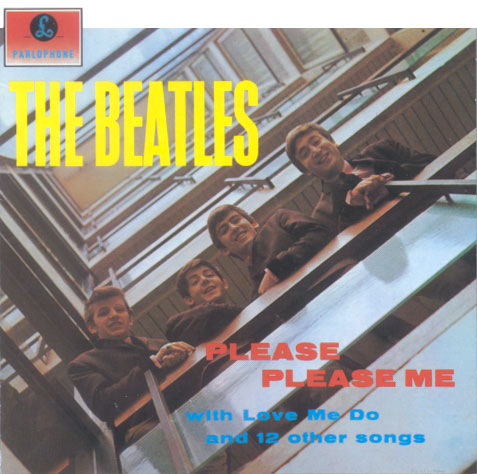 February 25th, 1963, was the date chosen to create both the mono and stereo mixes for the upcoming British album, “Please Please Me.” Since “P.S. I Love You” was also to be on the album, and it was all recorded on a single track only, they somehow needed to create a stereo mix for the stereo copies of the LP. To solve the problem, a “fake” stereo mix had to be created from the mono mix made on September 11th, 1962. Like “Love Me Do,” this song was rechanneled to have primarily all of the treble frequencies on one side and all the bass frequencies on the other, creating a stereo effect. There has never been a true stereo mix of this song, since it was originally only recorded in mono. February 25th, 1963, was the date chosen to create both the mono and stereo mixes for the upcoming British album, “Please Please Me.” Since “P.S. I Love You” was also to be on the album, and it was all recorded on a single track only, they somehow needed to create a stereo mix for the stereo copies of the LP. To solve the problem, a “fake” stereo mix had to be created from the mono mix made on September 11th, 1962. Like “Love Me Do,” this song was rechanneled to have primarily all of the treble frequencies on one side and all the bass frequencies on the other, creating a stereo effect. There has never been a true stereo mix of this song, since it was originally only recorded in mono.
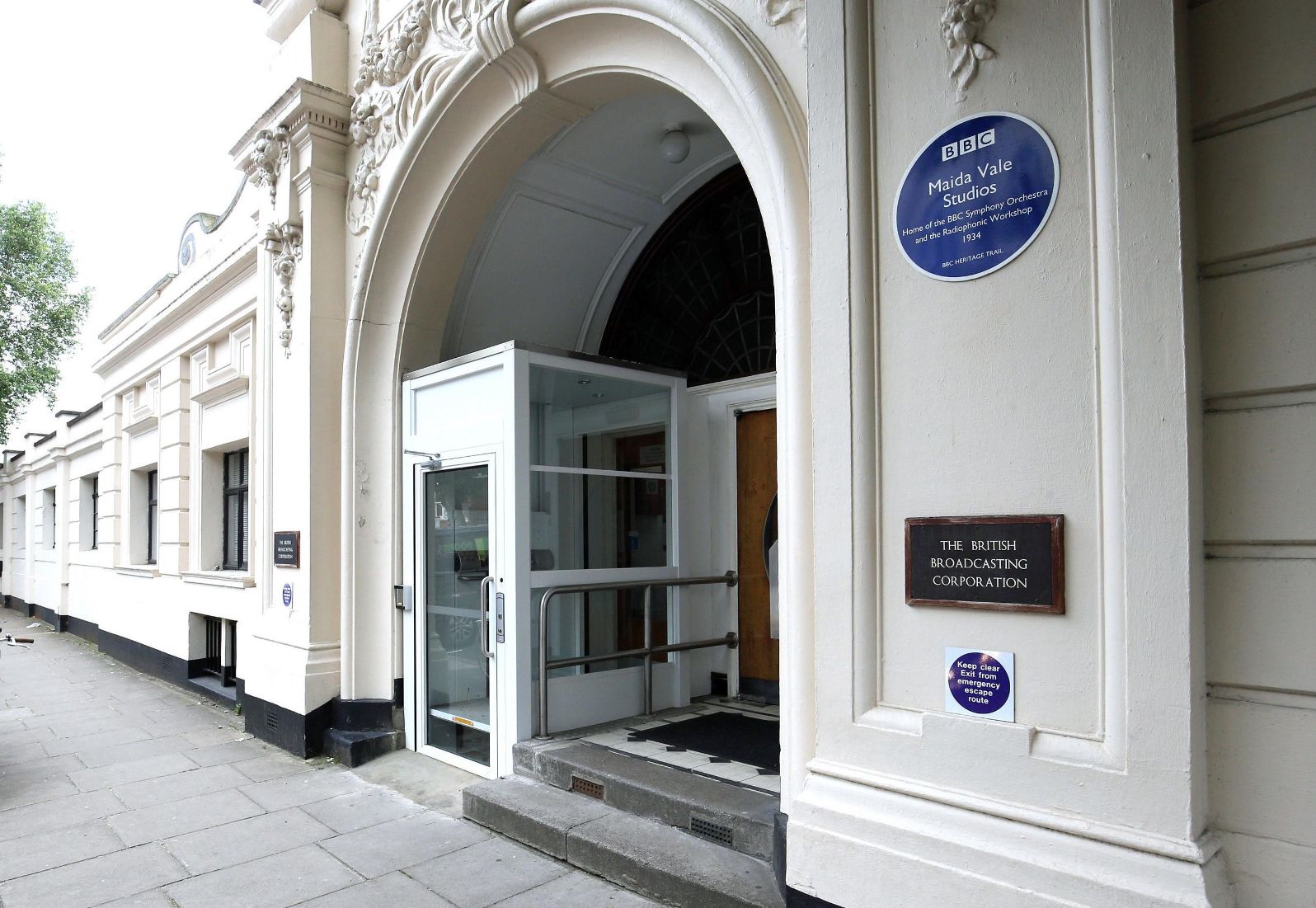 The third and final BBC recording of "P.S. I Love You" was made on June 17th, 1963 in Studio Five at Maida Vale Studios in London between 10:30 am and 1 pm for the fourth edition of the program “Pop Go The Beatles” with Terry Henebery as the producer, this being broadcast between 5 and 5:29 pm on June 25th, 1963. The third and final BBC recording of "P.S. I Love You" was made on June 17th, 1963 in Studio Five at Maida Vale Studios in London between 10:30 am and 1 pm for the fourth edition of the program “Pop Go The Beatles” with Terry Henebery as the producer, this being broadcast between 5 and 5:29 pm on June 25th, 1963.
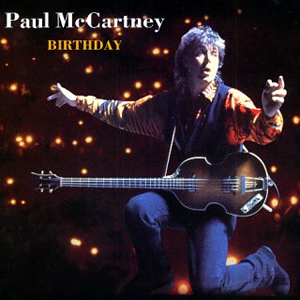 There are also a couple additional Beatles-related recordings of "P.S. I Love You" worthy of mention. Sometime between September of 1987 and February of 1989, while he was recording his “Flowers In The Dirt” album, Paul and his band concocted a rhythmic rendition of both “P.S. I Love You” and “Love Me Do” which they entitled “P.S. Love Me Do.” They were paired together, undoubtedly, because of these two song's publishing being the only ones in the entire Lennon / McCartney catalog that were owned by Paul. This new studio recording was not included on this solo album except for the Japanese version, entitled “Special Package,” which included various bonus tracks. A live version of this song was also recorded on April 21st, 1990 in Rio de Janeiro, which was included on European copies of his EP “Birthday.” There are also a couple additional Beatles-related recordings of "P.S. I Love You" worthy of mention. Sometime between September of 1987 and February of 1989, while he was recording his “Flowers In The Dirt” album, Paul and his band concocted a rhythmic rendition of both “P.S. I Love You” and “Love Me Do” which they entitled “P.S. Love Me Do.” They were paired together, undoubtedly, because of these two song's publishing being the only ones in the entire Lennon / McCartney catalog that were owned by Paul. This new studio recording was not included on this solo album except for the Japanese version, entitled “Special Package,” which included various bonus tracks. A live version of this song was also recorded on April 21st, 1990 in Rio de Janeiro, which was included on European copies of his EP “Birthday.”
Song Structure and Style
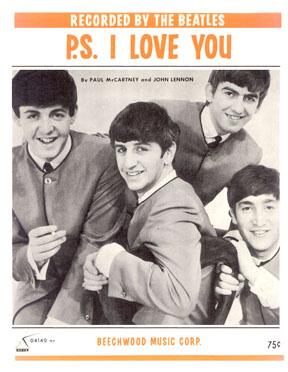 At first glance, "P.S. I Love You" appears to have an unorthodox structure, but after being analyzed, it is found to be similar in structure to most of the early Beatles catalog. The format here amounts to ‘verse/ verse/ bridge/ verse’ (or aaba). The exception to this rule is the unique introduction to the song, which is an altered version of the bridge that is repeated twice later in the song. The introduction, while identical in lyrics and number of measures to the bridge, differs in chord structure as well as melody line. In-between G and D, the unusual choice of Db7 is inserted (first heard on the word "write") in this introduction, this three chord sequence being repeated three times. Whether this introduction was suggested by George Martin, as many other early Beatles songs were subjected to introductory arrangements by their producer, or was Paul's original idea has not been revealed. Either way, it opens the song in a very unique and impressive way. At first glance, "P.S. I Love You" appears to have an unorthodox structure, but after being analyzed, it is found to be similar in structure to most of the early Beatles catalog. The format here amounts to ‘verse/ verse/ bridge/ verse’ (or aaba). The exception to this rule is the unique introduction to the song, which is an altered version of the bridge that is repeated twice later in the song. The introduction, while identical in lyrics and number of measures to the bridge, differs in chord structure as well as melody line. In-between G and D, the unusual choice of Db7 is inserted (first heard on the word "write") in this introduction, this three chord sequence being repeated three times. Whether this introduction was suggested by George Martin, as many other early Beatles songs were subjected to introductory arrangements by their producer, or was Paul's original idea has not been revealed. Either way, it opens the song in a very unique and impressive way.
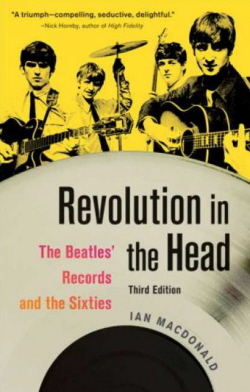 After this eight measure introduction, the first verse begins, which consists of ten measures. Paul is clearly singing lead with background harmony vocals from John and George, interestingly accentuating whatever syllable appears on the one beat of the first five measures, which turn out to be, “Treasure these few words till we’re together, keep all my love forever.” An interesting chord (Bb) is played during the first occurrence of the word “you,” this chord being described by Ian MacDonald in his book "Revolution In The Head" as "a dark sidestep" that adds anticipation to the resolve chord that follows (D). McCartney’s adept and effective songwriting skills are on display even this early in The Beatles’ songwriting career. After this eight measure introduction, the first verse begins, which consists of ten measures. Paul is clearly singing lead with background harmony vocals from John and George, interestingly accentuating whatever syllable appears on the one beat of the first five measures, which turn out to be, “Treasure these few words till we’re together, keep all my love forever.” An interesting chord (Bb) is played during the first occurrence of the word “you,” this chord being described by Ian MacDonald in his book "Revolution In The Head" as "a dark sidestep" that adds anticipation to the resolve chord that follows (D). McCartney’s adept and effective songwriting skills are on display even this early in The Beatles’ songwriting career.
 Each verse consists of alternation between major and minor chords, which is what attracted George Martin to this song, and characteristically concludes with the title of the song, which becomes the hook-line. Each verse consists of alternation between major and minor chords, which is what attracted George Martin to this song, and characteristically concludes with the title of the song, which becomes the hook-line.
After a second verse that is identical in structure, the first actual occurrence of the bridge takes place, which consists of eight measures and features full three-part harmony from Paul, John and George. Following this is an identical repetition of the first verse which then segues into the bridge once again. This time the bridge is accentuated by Paul in between each lyrical gap, which differentiates it from the first time the bridge is heard.
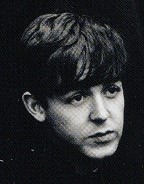 The final verse, this being a lyrical repetition of verse two, is different this time because of the backing vocals harmonizing throughout the first five measures instead of just on the first syllable as witnessed on each preceding verse. Four additional measures are added to the end as the harmonies elevate, thus creating a suitable climatic conclusion. So ends this satisfying and cleverly arranged production. The final verse, this being a lyrical repetition of verse two, is different this time because of the backing vocals harmonizing throughout the first five measures instead of just on the first syllable as witnessed on each preceding verse. Four additional measures are added to the end as the harmonies elevate, thus creating a suitable climatic conclusion. So ends this satisfying and cleverly arranged production.
Andy White's bongo playing on the song hints at a rumba or cha-cha style (one even wants to say 'cha-cha-cha' after the song ends). And with Ringo's maracas, we get a full Latin flavor to the song.
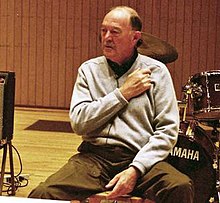 Many can easily dismiss Andy White’s percussive contribution to this song, saying that he misses the mark by failing to incorporate The Beatles' driving beat. The responsibility for this either rests on Paul McCartney or George Martin, who intended it to sound this way. George Martin is probably the one favored here because The Beatles were bowing to his expertise this early on, their being more than grateful to be working in a professional studio. Many can easily dismiss Andy White’s percussive contribution to this song, saying that he misses the mark by failing to incorporate The Beatles' driving beat. The responsibility for this either rests on Paul McCartney or George Martin, who intended it to sound this way. George Martin is probably the one favored here because The Beatles were bowing to his expertise this early on, their being more than grateful to be working in a professional studio.
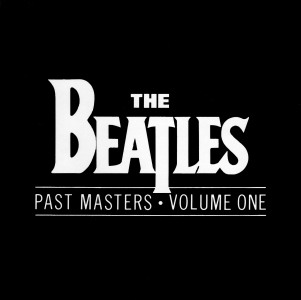 It should also be noted that Andy White’s drumming on “Love Me Do,” which was also recorded this day, incorporated the rock / r&b style that The Beatles previously utilized on the song (witness Pete Best's playing on "Anthology 1" and Ringo Starr’s version as heard on "Past Masters"). We may never be able to settle this argument fully because, even though both Pete Best and Ringo had played "P.S. I Love You" in EMI studios prior to Andy White, neither of those versions have survived for our ears to hear. Ringo’s performances of the song after this, such as on the BBC, were mimicking Andy White’s performance as heard on the released record. It should also be noted that Andy White’s drumming on “Love Me Do,” which was also recorded this day, incorporated the rock / r&b style that The Beatles previously utilized on the song (witness Pete Best's playing on "Anthology 1" and Ringo Starr’s version as heard on "Past Masters"). We may never be able to settle this argument fully because, even though both Pete Best and Ringo had played "P.S. I Love You" in EMI studios prior to Andy White, neither of those versions have survived for our ears to hear. Ringo’s performances of the song after this, such as on the BBC, were mimicking Andy White’s performance as heard on the released record.
 Picture sleeve to American "Love Me Do / P.S. I Love You" single
|
American Releases
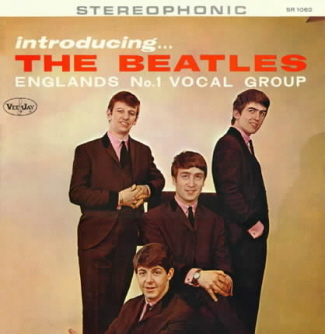 The first time the song was heard on US shores was with the initial release of the LP "Introducing The Beatles" by Vee-Jay Records back on January 10th, 1964. This version of the album was only available for public purchase for about a month because of an injunction filed by Capitol Records concerning this song and “Love Me Do,” being under license with Beechwood Music, a subsidiary of EMI. Therefore, this Vee-Jay LP was re-released on about February 10th, 1964 substituting “P.S. I Love You” and “Love Me Do” with songs that were not licensed with Beechwood Music, these being “Please Please Me” and “Ask Me Why.” The first time the song was heard on US shores was with the initial release of the LP "Introducing The Beatles" by Vee-Jay Records back on January 10th, 1964. This version of the album was only available for public purchase for about a month because of an injunction filed by Capitol Records concerning this song and “Love Me Do,” being under license with Beechwood Music, a subsidiary of EMI. Therefore, this Vee-Jay LP was re-released on about February 10th, 1964 substituting “P.S. I Love You” and “Love Me Do” with songs that were not licensed with Beechwood Music, these being “Please Please Me” and “Ask Me Why.”
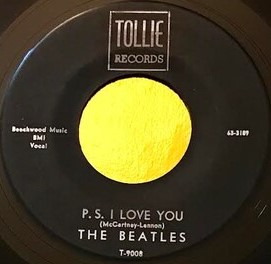 A settlement was reached between Beechwood and Vee-Jay Records in April of 1964, which allowed them to release those two songs as they saw it, the label wasted no time in releasing “Love Me Do” as a single, with “P.S. I Love You” as the b-side, on April 27th, 1964 on the newly formed Tollie record label. This was the first occurrence of The Beatles achieving a Top Ten placement on the Billboard Hot 100 in the US with both sides of a single. “Love Me Do” charted at #1 on May 30th, while “P.S. I Love You” charted simultaneously at #10. This was quite a notable achievement, especially since neither of these songs made it past #17 in Britain at the time. A settlement was reached between Beechwood and Vee-Jay Records in April of 1964, which allowed them to release those two songs as they saw it, the label wasted no time in releasing “Love Me Do” as a single, with “P.S. I Love You” as the b-side, on April 27th, 1964 on the newly formed Tollie record label. This was the first occurrence of The Beatles achieving a Top Ten placement on the Billboard Hot 100 in the US with both sides of a single. “Love Me Do” charted at #1 on May 30th, while “P.S. I Love You” charted simultaneously at #10. This was quite a notable achievement, especially since neither of these songs made it past #17 in Britain at the time.
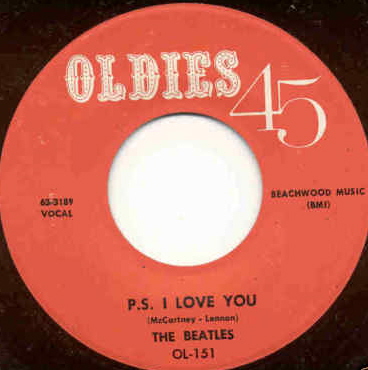 In August of 1964, Vee-Jay re-released this single on the short lived “Oldies 45” label. The next US release would be when Capitol gained full control of the early Beatles catalog and released their LP "The Early Beatles" on March 22nd, 1965. Mono copies of this album contained a "Type B" mix of all the songs that, in the case of "P.S. I Love You," combined both channels of their fake stereo mix that Capitol put into one channel, thus creating a uniquely odd mono version that is different from George Martin's mono mix featured on all of the Vee-Jay releases. This album was released on compact disc on January 21st, 2014, this CD containing both the mono and stereo mixes on one disc. On October 11th, 1965, Capitol decided to continue the availability of the "Love Me Do / P.S. I Love You" single with it's release on their “Starline” label. In August of 1964, Vee-Jay re-released this single on the short lived “Oldies 45” label. The next US release would be when Capitol gained full control of the early Beatles catalog and released their LP "The Early Beatles" on March 22nd, 1965. Mono copies of this album contained a "Type B" mix of all the songs that, in the case of "P.S. I Love You," combined both channels of their fake stereo mix that Capitol put into one channel, thus creating a uniquely odd mono version that is different from George Martin's mono mix featured on all of the Vee-Jay releases. This album was released on compact disc on January 21st, 2014, this CD containing both the mono and stereo mixes on one disc. On October 11th, 1965, Capitol decided to continue the availability of the "Love Me Do / P.S. I Love You" single with it's release on their “Starline” label.
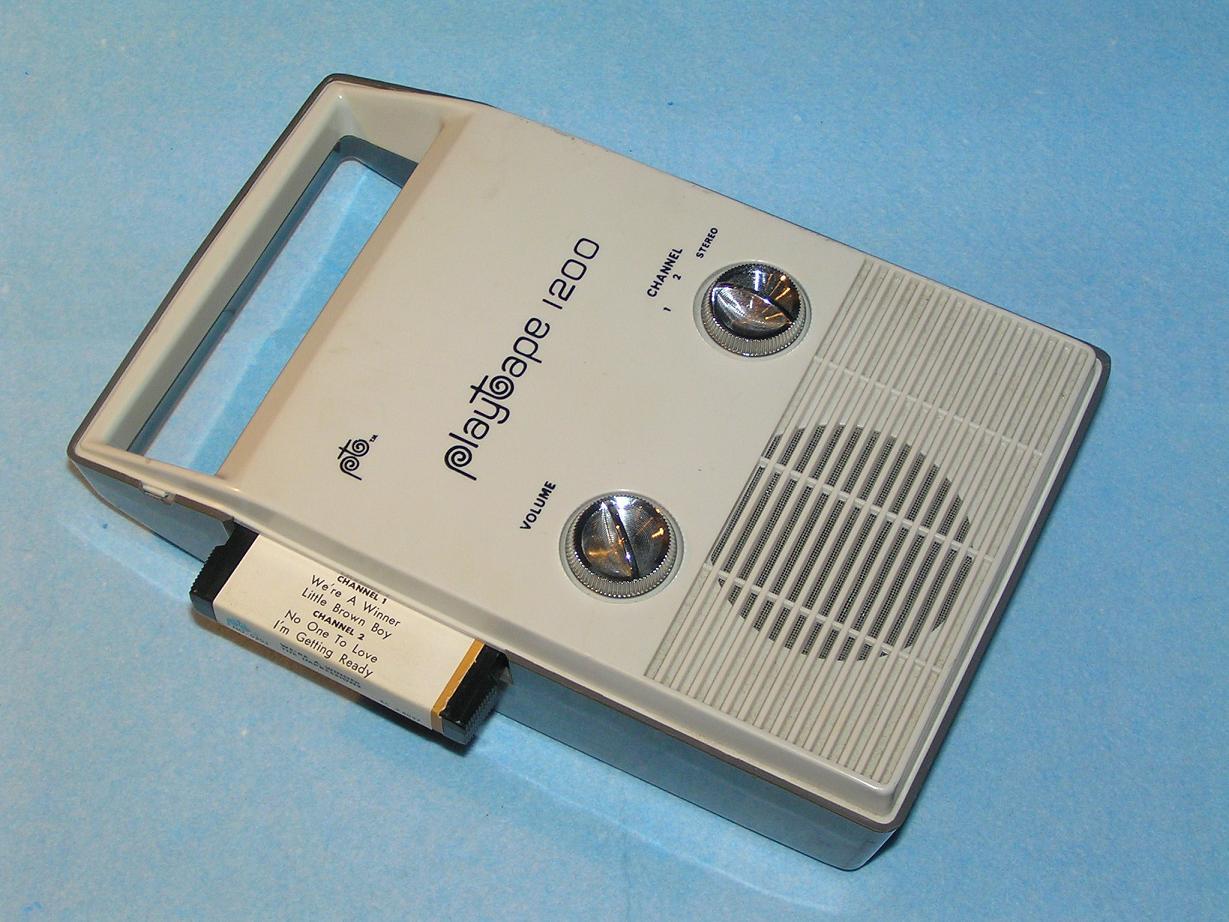 Sometime in 1967, Capitol Records released Beatles music on the brand new but very short-lived format called "Playtapes." These tape cartridges didn't have the capability of featuring an entire album, so they released two four-song versions of the album "The Early Beatles" in this portable format, the song "P.S. I Love You" being included on one of these. Beatles "Playtapes" are very hard to find today. Sometime in 1967, Capitol Records released Beatles music on the brand new but very short-lived format called "Playtapes." These tape cartridges didn't have the capability of featuring an entire album, so they released two four-song versions of the album "The Early Beatles" in this portable format, the song "P.S. I Love You" being included on one of these. Beatles "Playtapes" are very hard to find today.
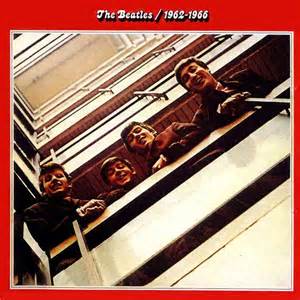 The ‘70s brought in a new wave of Beatlemania and with it a number of compilation packages. Although “P.S. I Love You” was a Top Ten hit in America, it was not included in the “1962-1966” album (better known as the “Red Album”) because the track list was compiled with their British hits in mind. It is a curious fact that, since this album was put together by Capitol in the US, they omitted sizable American hits, such as “Twist And Shout,” “Do You Want To Know A Secret,” as well as “P.S. I Love You” in favor of album tracks, such as “Girl,” “Drive My Car” and “In My Life.” “P.S. I Love You” was also not included in the compilation album of June 1976, namely “Rock 'n' Roll Music,” because of the song not fitting in with the ‘rock and roll’ theme of the album. The ‘70s brought in a new wave of Beatlemania and with it a number of compilation packages. Although “P.S. I Love You” was a Top Ten hit in America, it was not included in the “1962-1966” album (better known as the “Red Album”) because the track list was compiled with their British hits in mind. It is a curious fact that, since this album was put together by Capitol in the US, they omitted sizable American hits, such as “Twist And Shout,” “Do You Want To Know A Secret,” as well as “P.S. I Love You” in favor of album tracks, such as “Girl,” “Drive My Car” and “In My Life.” “P.S. I Love You” was also not included in the compilation album of June 1976, namely “Rock 'n' Roll Music,” because of the song not fitting in with the ‘rock and roll’ theme of the album.
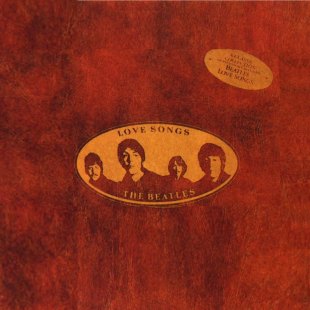 October 21st, 1977, did witness the inclusion of this song on the compilation album “Love Songs,” where it fit in quite well with the romantic theme of the album. “P.S. I Love You” was featured as the fitting conclusion of this double album released by Capitol. October 21st, 1977, did witness the inclusion of this song on the compilation album “Love Songs,” where it fit in quite well with the romantic theme of the album. “P.S. I Love You” was featured as the fitting conclusion of this double album released by Capitol.
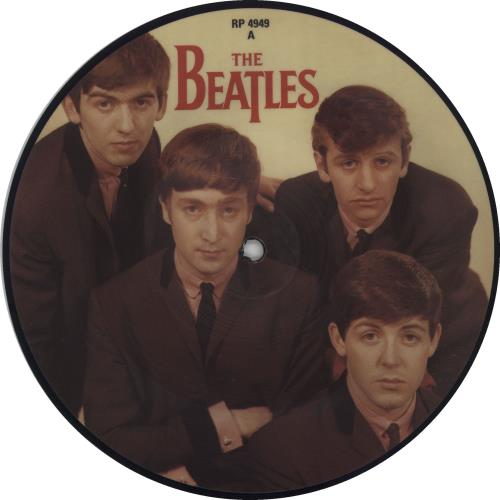 In connection with the 20th anniversary of the release of the first British Beatles single, Capitol re-released the "Love Me Do / P.S. I Love You" single once again on November 19th, 1982. Interestingly, they chose to resurrect the familiar Capitol swirl design featured on early US Beatles singles but mistakenly identified each song as being in stereo, although there were no existing stereo mixes for either of these songs at the time. In connection with the 20th anniversary of the release of the first British Beatles single, Capitol re-released the "Love Me Do / P.S. I Love You" single once again on November 19th, 1982. Interestingly, they chose to resurrect the familiar Capitol swirl design featured on early US Beatles singles but mistakenly identified each song as being in stereo, although there were no existing stereo mixes for either of these songs at the time.
Two and a half weeks later, on December 6th, 1982, a picture disc single of the "Love Me Do / P.S. I Love You" 45 was featured within the worldwide released vinyl box set "The Beatles Singles Collection." This picture disc single was then omitted when the box set got re-released decades later.
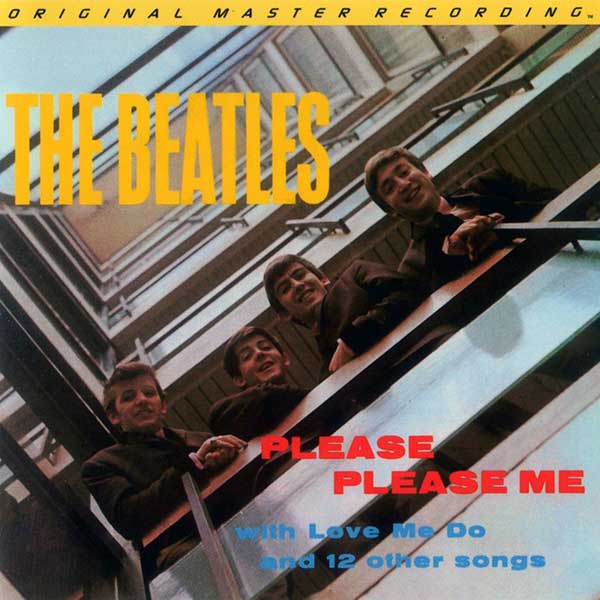 The first time the original British "Please Please Me" album was made available in America was on the "Original Master Recording" vinyl edition released through Mobile Fidelity Sound Lab in January of 1987. This LP included "P.S. I Love You" and was created using half-speed mastering technology from the original master tape on loan from EMI. This version of the album was only made available to the public for a short time and is quite collectible today. The first time the original British "Please Please Me" album was made available in America was on the "Original Master Recording" vinyl edition released through Mobile Fidelity Sound Lab in January of 1987. This LP included "P.S. I Love You" and was created using half-speed mastering technology from the original master tape on loan from EMI. This version of the album was only made available to the public for a short time and is quite collectible today.
 On February 26th, 1987, the British "Please Please Me" LP was first released on compact disc in mono, a vinyl edition of this album coming out in America on July 21st, 1987. A new remastered stereo version of this album came out on CD on September 9th, 2009 and on vinyl on November 13th, 2012. Although the song "P.S. I Love You" sounds far more vibrant and punchy on these stereo releases, no true stereo mix has been officially made for official release. On February 26th, 1987, the British "Please Please Me" LP was first released on compact disc in mono, a vinyl edition of this album coming out in America on July 21st, 1987. A new remastered stereo version of this album came out on CD on September 9th, 2009 and on vinyl on November 13th, 2012. Although the song "P.S. I Love You" sounds far more vibrant and punchy on these stereo releases, no true stereo mix has been officially made for official release.
Capitol released the box set “Compact Disc EP Collection” on June 30th, 1992. “P.S. I Love You” was included due to its being on the original British “All My Loving” EP, released on February 7th, 1964.
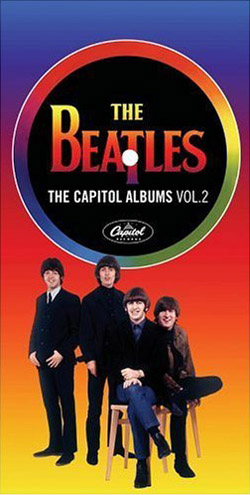 On October 19th, 1992, Capitol re-released the "Love Me Do / P.S. I Love You" single once again, this time on their Cema Series "for jukeboxes only." Inadvertently, about 250 to 300 copies were printed on red vinyl, these being distributed on March 10th, 1993 and becoming a rare find today. On October 19th, 1992, Capitol re-released the "Love Me Do / P.S. I Love You" single once again, this time on their Cema Series "for jukeboxes only." Inadvertently, about 250 to 300 copies were printed on red vinyl, these being distributed on March 10th, 1993 and becoming a rare find today.
The song is also featured within the April 11th, 2006 released box set “The Capitol Albums, Vol. 2,” which contained the original American album "The Early Beatles" with the exact stereo and mono mixes originally featured on the US March 22nd, 1965 release.
On September 9th, 2009, the CD box set “The Beatles In Mono” was released which featured the entire British “Please Please Me” album in clear remastered mono. The vinyl edition of this set was first released on September 9th, 2014.
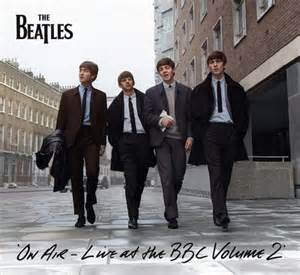 On November 11th, 2013, the album "On Air - Live At The BBC Volume 2" was released, this containing an unheard rendition of "P.S. I Love You" recorded on June 17th, 1963 for the radio program "Pop Go The Beatles." Listen for Ringo's alternating rim-shot accents on this version, him not being quite as familiar with this style of performing as originally played on the released version by drummer Andy White. We will notice here, however, the song's classy final chord, this undoubtedly giving us a clearer picture of their live performances of the song throughout 1963. On November 11th, 2013, the album "On Air - Live At The BBC Volume 2" was released, this containing an unheard rendition of "P.S. I Love You" recorded on June 17th, 1963 for the radio program "Pop Go The Beatles." Listen for Ringo's alternating rim-shot accents on this version, him not being quite as familiar with this style of performing as originally played on the released version by drummer Andy White. We will notice here, however, the song's classy final chord, this undoubtedly giving us a clearer picture of their live performances of the song throughout 1963.
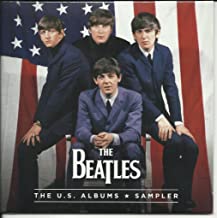 In promotion of their 2014 box set "The US Albums," a 25-song sampler CD was created for limited release on January 21st, 2014, this disc featuring the mono mix of "P.S. I Love You." In promotion of their 2014 box set "The US Albums," a 25-song sampler CD was created for limited release on January 21st, 2014, this disc featuring the mono mix of "P.S. I Love You."
Also distributed around this date was a 14-track sampler CD of the above box set used for promotional purposes, "P.S. I Love You" also being included therein.
Live Performances
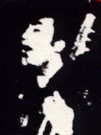 We can confidently assume that The Beatles performed this song during their third visit to Hamburg between April and June of 1962, although there isn't any documented evidence of this. This assumption comes from the song being written during this time period and The Beatles' long performance hours (sometimes 12 hours a day) which would allow for the group to premier newly composed material. They returned to Hamburg in November of that year, and then in December, which was directly after the release of their first single in Britain. It therefore appears likely, although unconfirmed, that the group would have performed this song during these gigs as well. We can confidently assume that The Beatles performed this song during their third visit to Hamburg between April and June of 1962, although there isn't any documented evidence of this. This assumption comes from the song being written during this time period and The Beatles' long performance hours (sometimes 12 hours a day) which would allow for the group to premier newly composed material. They returned to Hamburg in November of that year, and then in December, which was directly after the release of their first single in Britain. It therefore appears likely, although unconfirmed, that the group would have performed this song during these gigs as well.
 The band's first confirmed live performance of "P.S. I Love You" was for the BBC show “Here We Go,” this being played before a live audience at Manchesteer's Playhouse Theatre on October 25th, 1962. Then, as detailed above, The Beatles also performed this song on November 27th for the BBC radio program “The Talent Spot” before a live studio audience at BBC Paris Studio in London. Then on December 4th of that year, The Beatles then performed the song before a live performance on a British children's television show entitled "Tuesday Rendezvous," albeit as a mimed rendition with only 45 seconds of this performance making it to air. The band's first confirmed live performance of "P.S. I Love You" was for the BBC show “Here We Go,” this being played before a live audience at Manchesteer's Playhouse Theatre on October 25th, 1962. Then, as detailed above, The Beatles also performed this song on November 27th for the BBC radio program “The Talent Spot” before a live studio audience at BBC Paris Studio in London. Then on December 4th of that year, The Beatles then performed the song before a live performance on a British children's television show entitled "Tuesday Rendezvous," albeit as a mimed rendition with only 45 seconds of this performance making it to air.
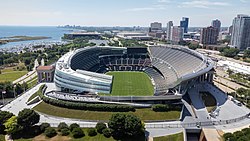 As described above, Paul periodically performed the combination “P.S. Love Me Do” arrangement during his “World Tour,” which began September 26th, 1989 and stretched until July 29th, 1990 at Soldier Field in Chicago, Illinois. During these shows, Paul put down his bass guitar, picked up a microphone and paced the stage while singing this unorthodox composition. This element of his live performances was short-lived and was not well-received by either fans or reviewers. As described above, Paul periodically performed the combination “P.S. Love Me Do” arrangement during his “World Tour,” which began September 26th, 1989 and stretched until July 29th, 1990 at Soldier Field in Chicago, Illinois. During these shows, Paul put down his bass guitar, picked up a microphone and paced the stage while singing this unorthodox composition. This element of his live performances was short-lived and was not well-received by either fans or reviewers.
Conclusion
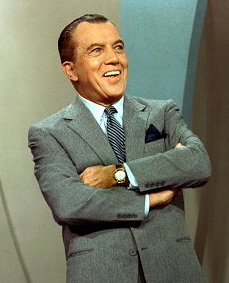 Although the song “P.S. I Love You” may be firmly fixed in American minds as just another slice of Beatlemania, it proves itself as an indication of the true diversity the band had to offer. Both the middle-aged and older population, as brought out in the press, viewed The Beatles as long-haired talentless “youngsters from Liverpool” that infiltrated the minds of American teenagers with their unconventional din of sound. If these older ones would have listened carefully to this Top Ten hit, for instance, they would have seen that their songwriting and performance style could be reminiscent of any and all music styles. No doubt, many middle-aged Americans grew to like this song, only later to find out that the artists responsible were the same "long-haired weirdos" they had scoffed at when they appeared on the Ed Sullivan Show. Although the song “P.S. I Love You” may be firmly fixed in American minds as just another slice of Beatlemania, it proves itself as an indication of the true diversity the band had to offer. Both the middle-aged and older population, as brought out in the press, viewed The Beatles as long-haired talentless “youngsters from Liverpool” that infiltrated the minds of American teenagers with their unconventional din of sound. If these older ones would have listened carefully to this Top Ten hit, for instance, they would have seen that their songwriting and performance style could be reminiscent of any and all music styles. No doubt, many middle-aged Americans grew to like this song, only later to find out that the artists responsible were the same "long-haired weirdos" they had scoffed at when they appeared on the Ed Sullivan Show.
 Whatever effect "P.S. I Love You" had on listeners, one thing that is evident is McCartney’s natural ability, even at this early stage, to compose a well-crafted and impressively structured song. Its effective major–to-minor chord structure, its somewhat simplistic but convincing lyrics, and its haunting melody line, all make for an indication of the potential for better things to come. Whatever effect "P.S. I Love You" had on listeners, one thing that is evident is McCartney’s natural ability, even at this early stage, to compose a well-crafted and impressively structured song. Its effective major–to-minor chord structure, its somewhat simplistic but convincing lyrics, and its haunting melody line, all make for an indication of the potential for better things to come.
Song Summary
“P.S. I Love You”
Written by: John Lennon / Paul McCartney
- Song Written: May 1962
- Song Recorded: September 11, 1962
- First US Release Date: January 6, 1964
- First US Album Release: Vee Jay #VJLP 1062 “Introducing…The Beatles”
- US Single Release: Tollie #9008
- Highest Chart Position: #10
- British Album Release: Parlophone #PCS3042 “Please Please Me”
- Length: 2:06
- Key: D major
- Producer: Ron Richards
- Engineer: Norman Smith
Instrumentation (most likely):
- Paul McCartney - Lead Vocals, Bass Guitar (1961 Hofner 500/1)
- John Lennon – Rhythm Guitar (1962 Gibson J160E), Background Vocals
- George Harrison – Rhythm Guitar (1962 Gibson J160E), Background Vocals
- Ringo Starr – Maracas
- Andy White - Bongos
Written and compiled by Dave Rybaczewski
|
IF YOU WOULD LIKE TO MAKE A DONATION TO KEEP THIS WEBSITE UP AND RUNNING, PLEASE CLICK BELOW!
Sign Up Below for our MONTHLY BEATLES TRIVIA QUIZ!
|